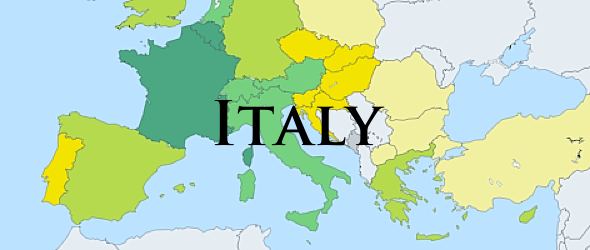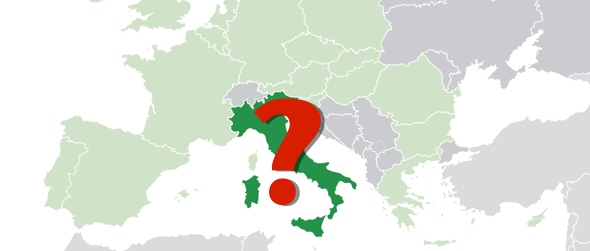In a press conference yesterday evening, Sunday, December 4th, 2011, Italian Prime Minister Mario Monti outlined his long anticipated austerity measures for Italy. Monti’s watchwords were transparency, efficiency, and growth.
Monti did his best to convince Italians that Italy needed strong medicine to sort out the country’s many ills, saying that he wanted Italy to achieve its full potential and to stop others from deriding Italy. He called his package, with a hint of irony, “Save Italy” measures. Monti also stressed that unlike measures taken by Italian previous governments, his package aims to improve Italy in the long term. Could Monti be the person to finally provide Italy with a coherent direction? One sincerely hopes so.
Prior to announcing a raft of cuts, taxes and structural reforms, Mario Monti set an example by stating that he was forgoing his salary. Actually, he is entitled to two pay packets – one for being Italy’s Prime Minister and the other for being the nation’s Economy Minister. Monti gives the impression he believes in Italy.
Despite widespread speculation, Monti has not put up income tax in Italy.
Here is a list of the main points of Monti’s measures for Italy.
Key Austerity Issues
The key issues addressed by this latest round of austerity measures for Italy were
- Pensions reforms – the bitterest pill for Italians to swallow, but also a distinct necessity. Italy’s pensions system model was unsustainable. For a pensions system to function people have to be working but for people to have jobs means that the economy needs to grow. Italy’s economy is static and its population is ageing. Add in a low birthrate and the combined effects lead to a pensions system which will eventually collapse.
- A 1.5% tax on movements of capital which had been subject to a widely fiddled fiscal shield. This is something of an alternative to a wealth tax which Monti reportedly discounted as he feared it would lead to a flight of capital from Italy to other countries. This would have left Italy’s banks in hot water. Although a wealth tax will not be a feature of Monti’s measures, a luxury tax is to be applied to cars, aircraft, and boats (0ver 10 metres). Cars with engines producing more than 170Kw (229 BHP) will be subject to extra tax.
- The introduction of an Imu (Imposta Municipale – Municipal Tax) property tax on primary residences. A replacement for the ICI property tax which had been abolished on primary residences by Monti’s predecessor – Silvio Berlusconi. This property tax is predicted to be some 75% higher on second and third homes.
- An increase in VAT in Italy – though not immediately. VAT in Italy will increase from 21% to 23% in the second half of 2012.
- Cuts in the cost of politics – primarily at a provincial level.
- Anti-tax evasion measures – now, in Italy, cash payments will be limited to €1000. To limit the cost of this requirement for Italy’s citizens, during last night’s press conference, it was mentioned that the government was holding talks with banks and credit card providers to reduce commission levels. The idea here seems to be to ensure that managing electronic payments should cost the same, or maybe less, than payments in cash.
Other measures
In addition to the key measures the Monti plan introduces, there were some others which are worthy of note:
- The abolition of certain government entities. Two entities which will be phased out will be pensions entities Enpais and Indpdap. Savings achieved as a result of culling these entities will amount to 20 million Euros in 2012 and increase to 110 million Euros in 2014, according to the print edition of Italian daily La Repubblica.
- Gradually rendering Italy’s local councils more autonomous.
- The setting up of a Families Fund.
- The liberalisation of the market for non-prescription pharmaceutical products.
- Businesses will receive more favourable tax treatment if they take on the young and women. Within the economic stimulus packages are modifications to tax legislation which aim to encourage businesses to employ more Italians. 6th December, 2011 – update: Tax benefits for employing the under 35s in Italy, both men and women, have been announced: Companies which take on the young and women under full time permanent work contracts will be able to deduct €10,600 for each employee that falls into one of the two aforementioned categories. This tax discount increases to €15,200 for Italy’s southern regions and for the Italian islands of Sardinia and Sicily.
- Measures designed to promote tourism were mentioned, but details are yet to be made public.
Another Monti measure concerns freeing up European funding. While Italy has access to not inconsiderable levels of money from Europe, such money often remains unused for reasons unknown. Some suspect that European money is not spent because it is impossible for corrupt politicians to take a cut owning to the exacting accountability procedures the European Union requires. This is, of course, merely an unconfirmed suspicion.
More detailed aspects of the measures will come out in the next few days.
Savings
For the 2012 – 2014 period, Monti’s measures should recoup and save around €20 billion for Italy’s coffers. The total value of the measures is actually €30 billion in view of €10 billion of interventions designed to stimulate economic growth.
Measures are Law, Almost
Note that while the measures are law, to become permanent, they will need to be voted through Italy’s parliament by Italy’s politicians. Berlusconi wants Monti to request a confidence vote to pass the latest round of austerity measures. If Monti loses such a vote, Italy will be back in the same position as it was before Berlusconi resigned. This would not be good for Italy – or for the Euro zone.
Monti needs to keep as many politicians as happy as possible over the next few weeks – or else the vote could go against him.
Reactions
The FTSE MIB – Milan’s stock market is up 1.77% so far today. Mini-update: Since I published this article (10:41 am), the Milan market has continued to rise (12:10 pm). If the Milan market continues to rise for the rest of this week and beyond, then it would be safe to say Italy’s financial markets have reacted favourably to Monti’s manoeuvres.
Italy’s President Napolitano is happy with what Monti and his government are trying to do.
Berlusconi’s party, the centre-right PdL, is unhappy with the cash payment limit of €1000 as they believe it restricts liberty. The party is, however, happy that income tax levels have not gone up.

Stop reading, start speaking
Stop translating in your head and start speaking Italian for real with the only audio course that prompt you to speak.
The PD, Italy’s centre-left Democratic Party, believes the Monti measures are not as balanced as they should be in that they appear to target those on lower incomes and states it will work to redress the balance.
Pier Ferdinando Casini, leader of the centre-centre UDC, thinks the measures are tough, but that Monti’s reasoning is convincing.
Italy’s unions are up in arms as they believe the full Monti will hammer poorer Italians.
The Lega Nord political party want to form their very own independent republic.
Italians, like my Italian other half, may find it hard to accept that Monti who has forgone his salary is doing something for nothing. It seems to be extremely rare for Italian politicians to act for the good of Italy – unless that is, they can stuff their offshore bank accounts in the process. Anyway, Monti got off to a good start. His team gave off an air of objectivity, professionalism, and competence – quite a sight for sore eyes and most unusual for Italy!
I’ll gauge the opinions of other Italians by speaking to a few this coming week.
From beyond Italy’s boundaries, the European Commission has welcomed Monti’s package.
The choice of holding a press conference on a Sunday evening was interesting. Perhaps Monti wanted to see how Italy’s extremely nervous financial markets would react. However Monti is also clearly aware that Italy is merely a spoke within the wheel that is Europe and knows full well that the Euro could come to a sticky end very soon. If this did happen, Italy with its zero growth, huge public debt, high youth unemployment plus pretty awful management would end up in very dire straits indeed.
What Next?
Aside from the vote which will transform the measures into permanent legislation, it will take some time for the effects of Monti’s manoeuvres to be felt and for Italy to know whether they have been effective.
To an extent though, Monti’s plan amounts to something of a revolution for Italy. If nothing else, Monti and his team deserve hearty slaps on their backs for having put together a government and a serious economic stimulus package in record time.
For this Italy watcher, there can only be one real sign that Italy is growing up – when Italians who have left Italy for greener pastures start returning.
As a matter of interest, I took a look at what Monti was reportedly cooking up in this: What Mario Monti will do?
Sources:
Press release No. 5 by the office of Italian Cabinet
Il Messaggero – Monti: «Sacrifici per salvare l’Italia» Stretta sulle pensioni, non sale l’Irpef – in Italian.





